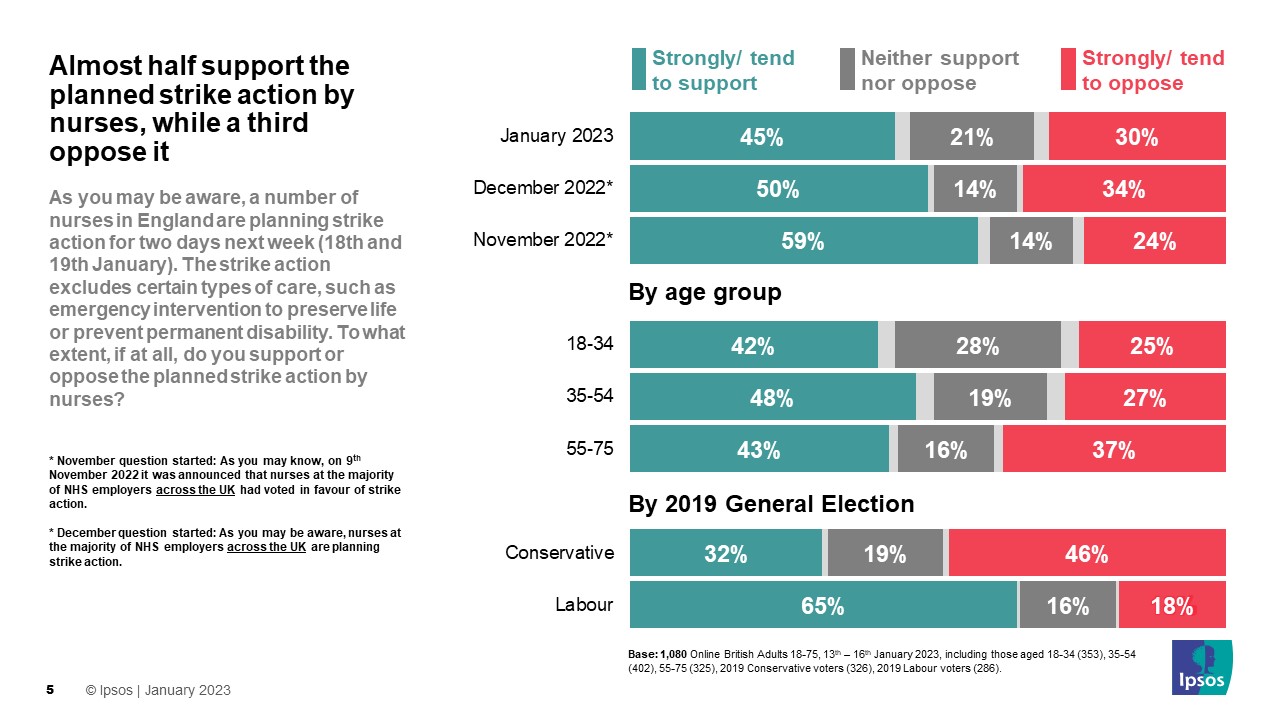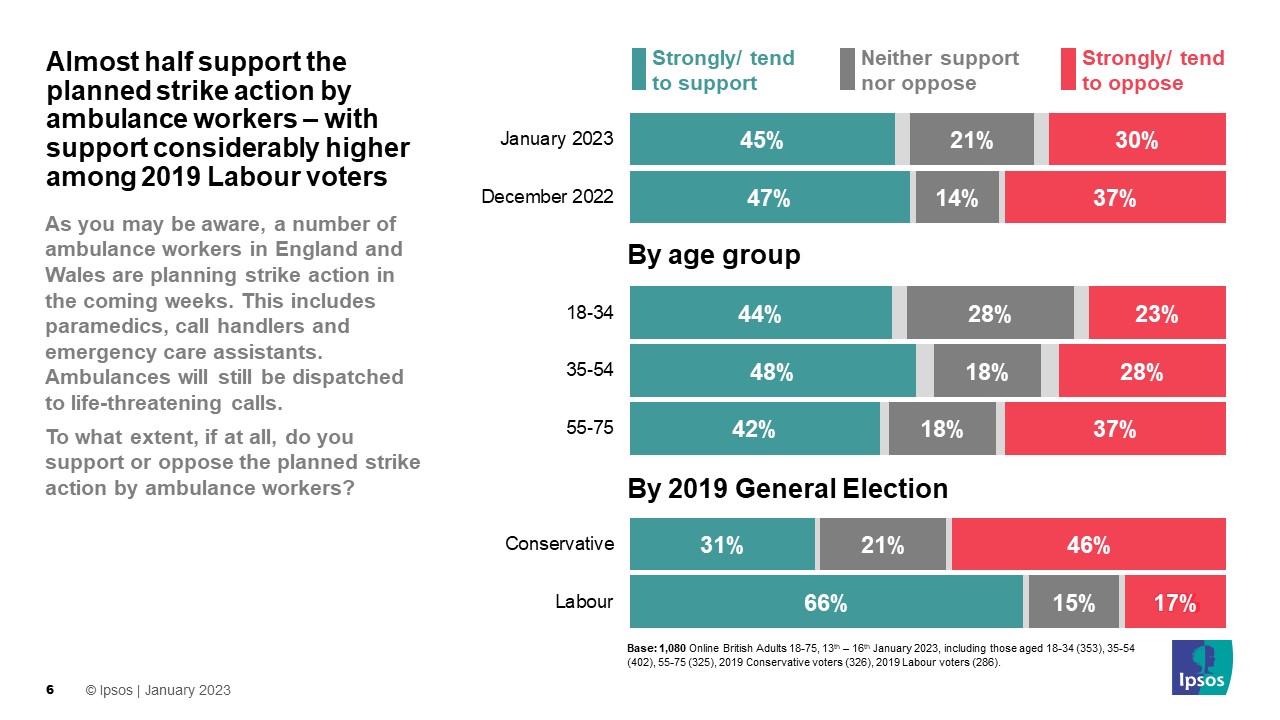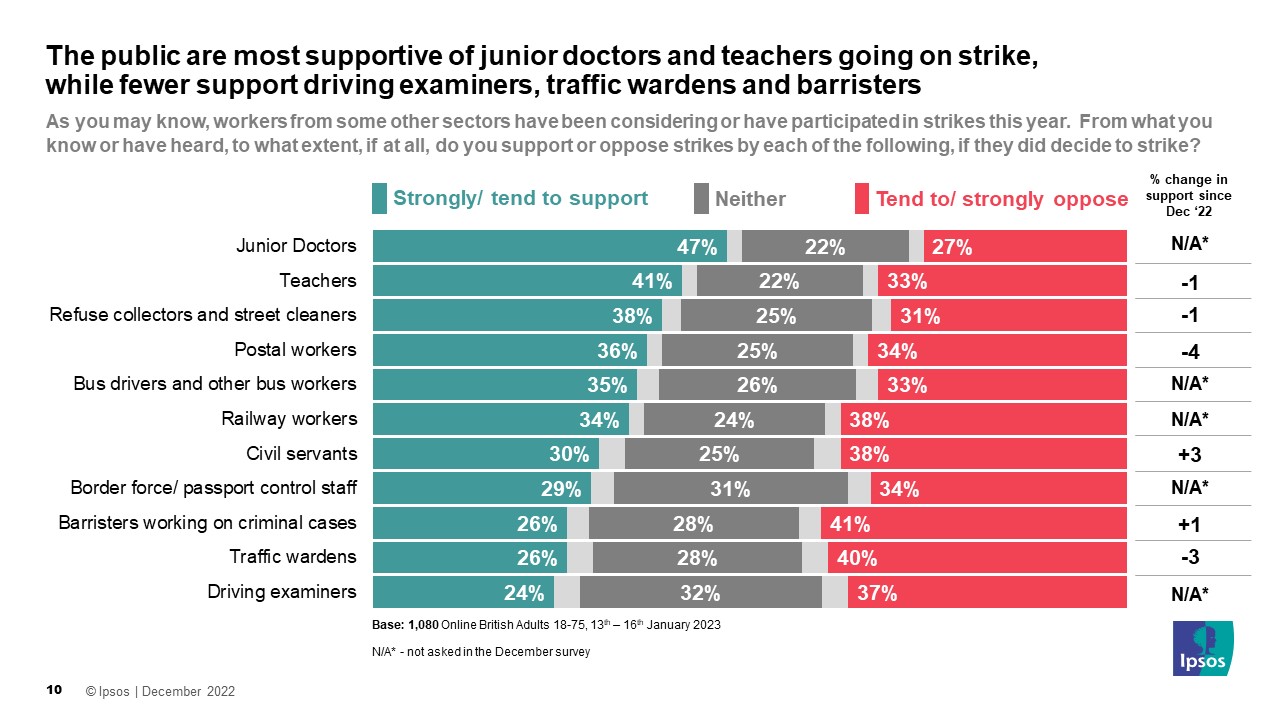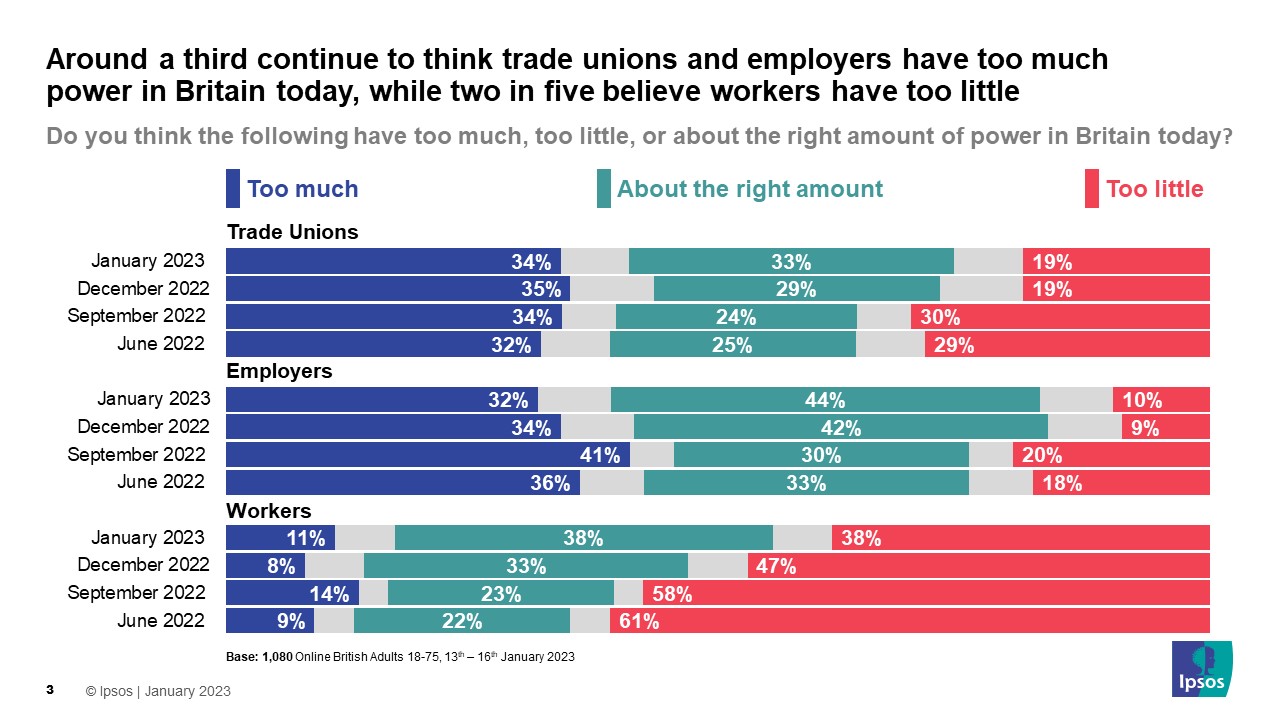Support for nurses’ strikes lower than last month’s but blame placed mainly with the Government
- Support for the planned nurses’ strikes in England is lower than similar strikes across the UK received last month
- However, sympathy remains high for nurses and ambulance workers as nearly 3 in 5 say the Government is more at fault for the length of the industrial dispute than nurses themselves
- While opinion is split as to whether unions have enough or too much power, a large majority agree they are important to protect workers’ interests
Ipsos’ latest poll shows 45% support the upcoming strike action by nurses in England, which is lower than the 50% who supported similar nurse strikes across the UK in December and 59% in November. However, still only 3 in 10 (30%) oppose the strikes. . Support is significantly higher among 2019 Labour voters, 65% are in favour of the strikes while 2019 Conservative voters are half as likely to say the same (32%).

Support for ambulance drivers is similar, with 45% in favour and 30% opposed. While support for these strikes has fallen by 2ppt since December, opposition has fallen by 7ppt.
Nurses themselves do not appear to be getting the blame for how long the dispute is lasting. Almost 3 in 5 (57%) say the Government is at fault for the longevity of the debate compared to a quarter (25%) saying the Government and nurses are both at fault, and only 9% whole believe the blame lies with the nurses.

From what they know about the strikes, large majorities continue to feel sympathy towards nurses (82%) and ambulance workers (80%), however they are most likely to feel sympathy towards NHS patients (90%). Around 3 in 5 (61%) are sympathetic towards unions representing nurses and ambulance workers while just under half say the same for NHS management (46%). Just a quarter (26%) feel sympathy for the UK Government, compared to 7 in 10 (70%) who don’t.
As various professions vote to start or continue striking, junior doctors (47%) and teachers (41%) are most likely to be supported, along with refuse collectors and street cleaners (38%) and postal workers (36%). Those most likely to be opposed are barristers working on criminal cases (41%), traffic wardens (40%), railway workers (38%) and civil servants (38%).

Trade Union Power
Around a third believe trade unions have too much power in Britain today (34%), seeing little change on our tracker since June 2022. We have seen more fluctuation in the proportion who say they have about the right amount, now 33% believe this is the case, up from 25% in June of last year. Meanwhile, after a significant drop last month (30% in September to 19% in December), the proportion who believe trade unions do not have enough power remains consistent (19%).
In comparison, 32% say employers have too much power, 44% say they have the right amount and 10% say they have too much. Only 1 in 10 (11%) believe workers have too much power, 38% say they have the right amount while the same proportion (38%) believe they have too little.

A large majority say it is important to have trade unions to protect workers’ interests (79%), falling slightly from 83% last September and 85% last June. Only 13% say they are not important.
Technical note
Ipsos interviewed a representative quota sample of 1,080 adults aged 18-75 in Great Britain. Interviews took place on the online Omnibus 13th-16th January 2023. Data has been weighted to the known offline population proportions. All polls are subject to a wide range of potential sources of error.






